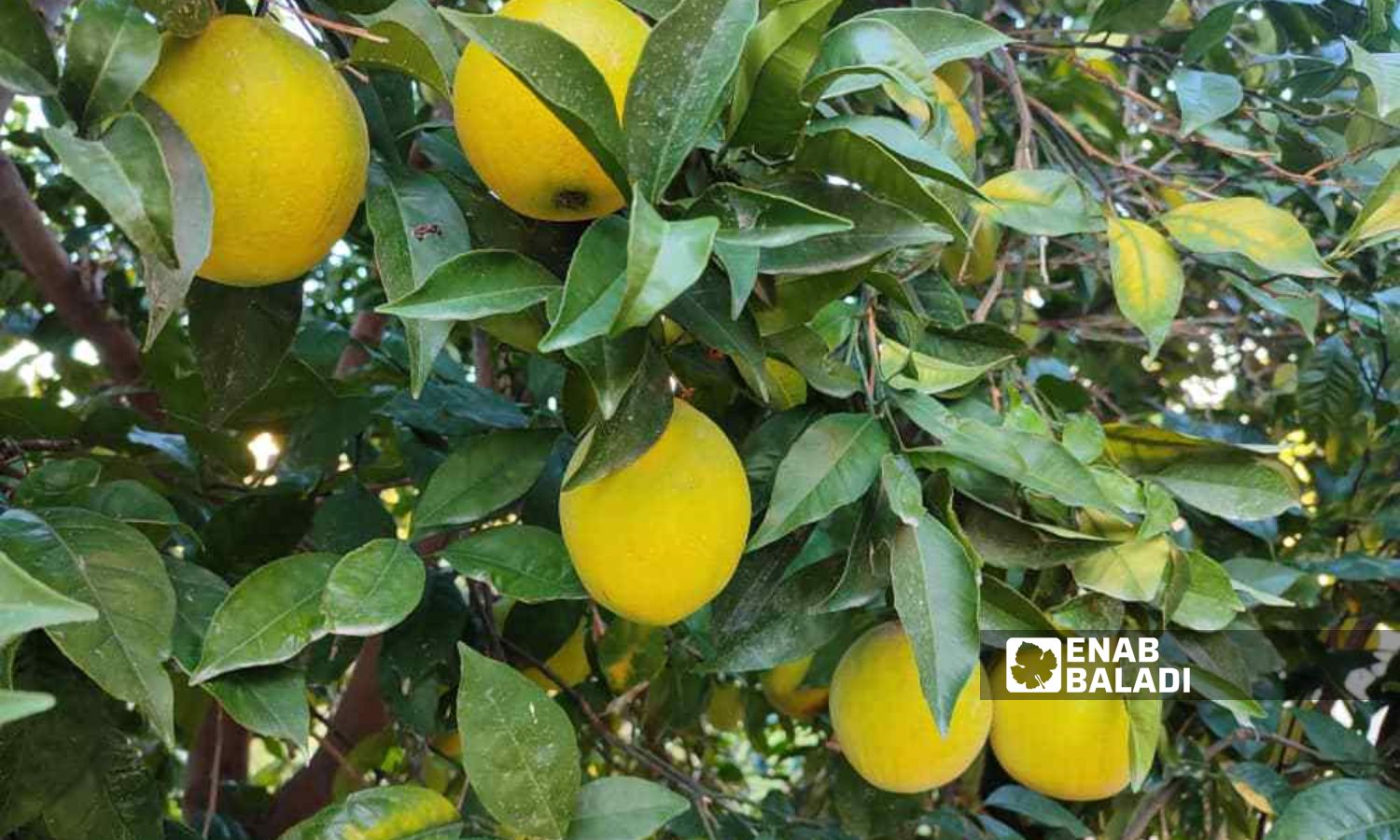



The Directorate of Agriculture in Latakia governorate announced preliminary estimates for the citrus season’s production, which is expected to be around 540,000 tons.
Latakia’s Director of Agriculture, Bassam Douba, stated in an interview with the government Tishreen newspaper on Sunday, August 18, that the area planted with citrus crops in the governorate reaches approximately 30,000 hectares, with around ten million citrus trees.
Douba mentioned that citrus species produce crops throughout the year, with early, medium, and late harvest times. He noted an improvement in citrus exports over the past few years through sorting and packaging centers and the reliability program to both domestic and international markets.
According to Omran Ibrahim, Head of the Fruit Trees Department at the Latakia Directorate of Agriculture, about 40,000 families are involved in citrus farming in Latakia governorate.
Latakia governorate leads citrus production, accounting for 75% of Syria’s total production.
Every citrus season, the products accumulate with farmers and suffer from rot and spoilage, causing significant losses for farmers, without effective government solutions. There is no government juicing factory in Syria to utilize the production for local sale or export.
Each year, government promises are repeated to prevent losses for citrus farmers in the Syrian coast, but none of these promises materialize. Successive government officials have failed to solve the citrus marketing issue, to the extent that some farmers have uprooted their trees and built residential buildings or replaced them with other crops.
With the rising cost of fertilizers and most other agricultural expenses, losses have become unbearable for many farmers.
In a report published by Enab Baladi at the end of October 2023, farmers complained about the high costs of citrus farming and the significant difficulty in marketing their produce.
Many coastal Syrian farmers are accustomed to leasing their citrus-planted lands, where traders estimate the weight of each tree’s yield, pay the farmer immediately, and then take over the crop and decide when to harvest it.
Another type of farm leasing involves a trader selecting specific types of trees to rent at an agreed price, such as choosing to buy the lemon “Meyer” or “Abu Surra” crops only, without the other types.
if you think the article contain wrong information or you have additional details Send Correction